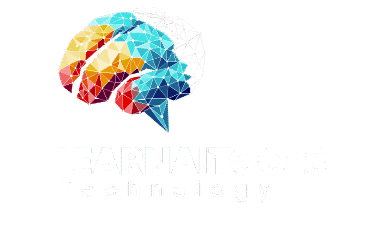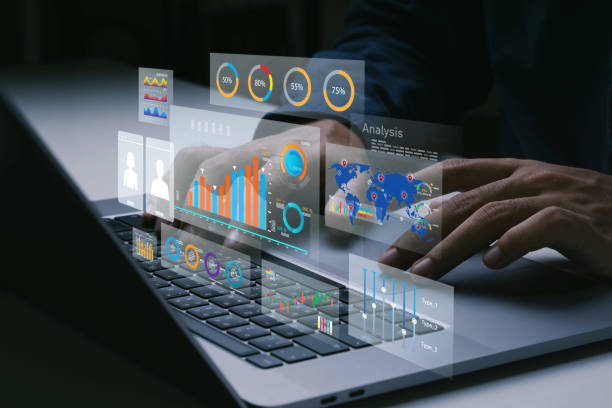
AI for Affiliate Marketing is rapidly becoming one of the biggest game-changers in the digital marketing world. From identifying profitable niches to optimizing campaigns in real time, AI is helping affiliate marketers earn more with less effort. In today’s competitive landscape, using AI is no longer optional—it’s essential for staying ahead.
What is AI for Affiliate Marketing?
At its core, AI for Affiliate Marketing means using artificial intelligence tools and algorithms to make affiliate campaigns smarter and more efficient. AI can analyze massive amounts of data, predict customer behavior, personalize content, and even automate ad targeting. Instead of guessing what works, marketers can now rely on data-driven insights to maximize profits.
For example, rather than spending hours researching which product might sell, AI tools can scan through trends, customer reviews, and competitor websites to instantly suggest high-converting products. This saves time and reduces trial-and-error costs.

Why AI for Affiliate Marketing Matters in 2025
In 2025 and beyond, the affiliate industry is more crowded than ever. Traditional methods of running ads or writing blogs are not enough. Here’s why AI for Affiliate Marketing matters:
- Smarter Audience Targeting – AI predicts which audience segments are most likely to convert.
- Content Optimization – AI tools help generate blog posts, product reviews, and social media captions that rank well on Google.
- Better ROI – By automating bidding strategies, AI ensures you spend less and earn more.
- Fraud Detection – AI systems can catch fake clicks and bot traffic, protecting your earnings.
- Trend Forecasting – AI identifies market shifts early, so affiliates can promote products before competitors.
Imagine promoting a fitness supplement. Instead of randomly targeting fitness enthusiasts, AI can narrow down audiences who recently searched for “post-workout recovery” or “weight loss protein.” This precision leads to higher sales.
Key Benefits of AI for Affiliate Marketing
Using AI for Affiliate Marketing comes with several advantages that directly boost revenue:
- Personalization at Scale – AI tailors product recommendations to individual users.
- Real-time Analytics – Marketers get instant insights into what is working and what’s not.
- Automated Campaigns – Saves time by running ads, tracking conversions, and optimizing content automatically.
- Voice & Chatbots – AI-powered assistants help answer customer queries and improve trust.
- SEO Improvements – AI tools suggest keywords, backlinks, and content structure for better ranking.
- Email Marketing Optimization – AI can improve subject lines, timing, and personalization for higher open and click-through rates.
- Multi-channel Integration – AI can synchronize campaigns across YouTube, Instagram, Google, and blogs simultaneously.
Real Examples of AI for Affiliate Marketing
Let’s take a few real-world use cases of AI for Affiliate Marketing:
- Amazon Affiliates: Many affiliates use AI tools to analyze which Amazon products are trending and create optimized product review blogs.
- Bloggers & YouTubers: AI helps create scripts, video edits, and SEO-optimized blog posts quickly.
- E-commerce Partners: Affiliates promoting Shopify or SaaS tools rely on AI for predictive analytics to know which customer segments are likely to subscribe.
For example, a travel blogger promoting affiliate links for flight booking websites can use AI to automatically update price comparisons, ensuring visitors always see the latest deals—leading to higher conversions.
How to Use AI for Affiliate Marketing Successfully
If you want to use AI for Affiliate Marketing, here are some practical strategies:
- AI Writing Tools: Tools like Jasper or Writesonic generate product descriptions and blogs that boost conversions.
- AI SEO Tools: Platforms like SurferSEO or Clearscope ensure your content ranks higher on Google.
- AI Ad Platforms: Google Ads and Meta Ads now offer AI-driven automation for targeting and bidding.
- AI Email Tools: Systems like Mailchimp’s AI engine suggest subject lines and sending times for better open rates.
- AI Analytics: Tools like Google Analytics 4 and PaveAI convert raw data into actionable strategies.
- AI Chatbots: Adding AI-powered bots to websites or landing pages can answer customer questions 24/7.
Challenges of AI for Affiliate Marketing
While AI for Affiliate Marketing is powerful, there are challenges:
- High Competition – As more affiliates use AI, standing out becomes harder.
- Cost Factor – Some AI tools can be expensive for beginners.
- Learning Curve – Understanding AI-based platforms requires time and effort.
- Over-dependence – Relying too much on AI might reduce creativity in campaigns.
- Ethical Concerns – AI-driven hyper-targeting sometimes raises privacy issues among users.
The key is balance—combine AI insights with your own creativity for the best results.
Future of AI for Affiliate Marketing
The future of AI for Affiliate Marketing looks very promising. With advancements in predictive analytics, voice search, and automation, affiliates will be able to run entire businesses with minimal manual work. AI will not just help in campaign optimization but also in creating more engaging and personalized customer experiences.
For instance, AI might soon be able to create personalized video ads for each user based on their interests—something impossible with traditional marketing. Affiliates who adopt early will enjoy massive advantages.
Final Thoughts
In conclusion, AI for Affiliate Marketing is transforming how people earn money online. From smarter targeting and better content creation to fraud detection and automated optimization, AI offers endless opportunities. Whether you’re a beginner or a professional, leveraging AI tools in affiliate marketing is the key to boosting profits in 2025 and beyond.
If you want to stay ahead, start exploring AI-powered tools today—they’re not just a trend, they’re the future of affiliate success.




